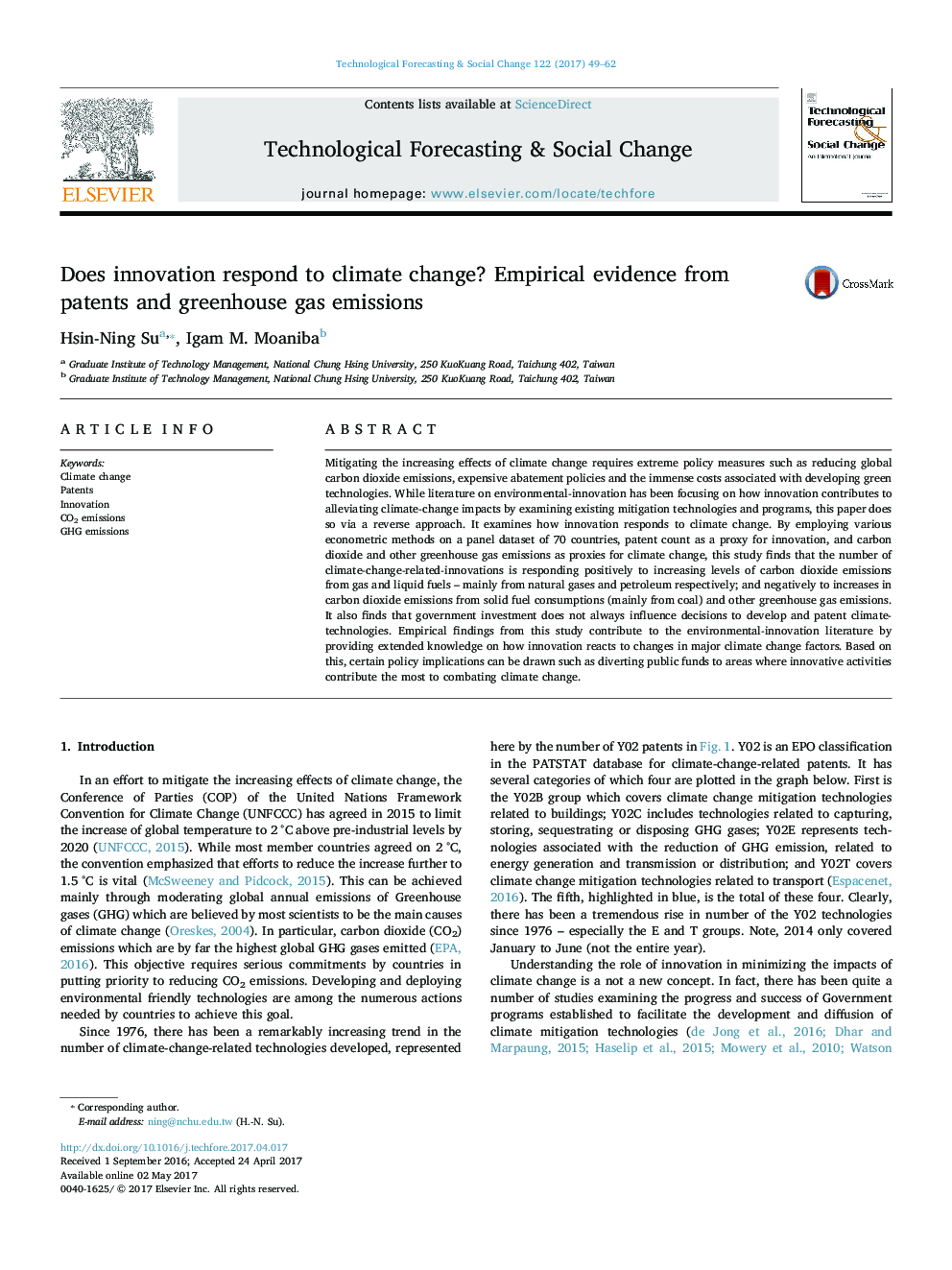| Article ID | Journal | Published Year | Pages | File Type |
|---|---|---|---|---|
| 5036837 | Technological Forecasting and Social Change | 2017 | 14 Pages |
â¢Technological innovation is responding strongly to climate change.â¢GHG gas emissions influence the development of Climate-related technologies.â¢High carbon emitting countries develop more climate-related technologies.â¢Development of Y02 technologies responds more to natural gas emissions.â¢A new reverse-analytical approach is devised and employed.
Mitigating the increasing effects of climate change requires extreme policy measures such as reducing global carbon dioxide emissions, expensive abatement policies and the immense costs associated with developing green technologies. While literature on environmental-innovation has been focusing on how innovation contributes to alleviating climate-change impacts by examining existing mitigation technologies and programs, this paper does so via a reverse approach. It examines how innovation responds to climate change. By employing various econometric methods on a panel dataset of 70 countries, patent count as a proxy for innovation, and carbon dioxide and other greenhouse gas emissions as proxies for climate change, this study finds that the number of climate-change-related-innovations is responding positively to increasing levels of carbon dioxide emissions from gas and liquid fuels - mainly from natural gases and petroleum respectively; and negatively to increases in carbon dioxide emissions from solid fuel consumptions (mainly from coal) and other greenhouse gas emissions. It also finds that government investment does not always influence decisions to develop and patent climate-technologies. Empirical findings from this study contribute to the environmental-innovation literature by providing extended knowledge on how innovation reacts to changes in major climate change factors. Based on this, certain policy implications can be drawn such as diverting public funds to areas where innovative activities contribute the most to combating climate change.
